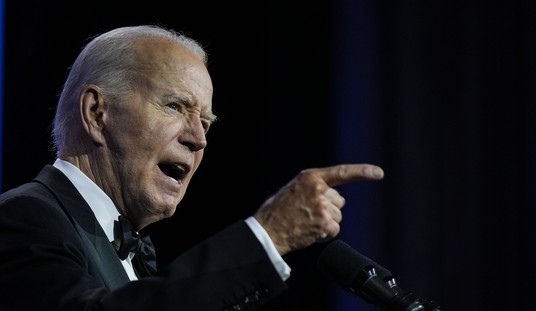Andrew Breitbart describes the rise and fall of “Perez Hilton”, AKA Mario Lavandeira, a person who readers may recall had derogatory words for the former Miss California and who recently had a dust-up with Will I. Am of the Black Eyed Peas, who readers may also recall authored that paean to Barack Obama, Yes We Can. Mr. Lavandeira is a man whose profession fits no known description, so I shall not attempt to characterize what he does. Breitbart however does. “What Mr. Lavandeira does on his Web site goes beyond satire or biting criticism. It is cruelty of the worst kind. No taunt or insult is too low. Using primitive drawing skills, he and his crew even scrawl vulgar pictures on the faces of their victims.” So you can draw your own conclusions from that.
The morality tale which Breitbart describes begins when Lavandeira attends a party presumably to suck up grist for his rumor mill, only to find that recent object of his derision, Mr. Will I. Am of the Black Eyed Peas, in attendance. Mr. Am’s inquiries provoked, according to Lavandeira’s own re-enactment of the scene, an urge to flee the club. But the Black Eyed Peas party followed him out and gave him, appropriately enough, a black eye. Breibart seems almost thankful for the bizarre circumstances which allowed a kind of rough justice to take place. He argues that, in politically correct America, no one else could punch out Lavandeira’s lights except a black man. Breitbart writes:
Mr. Lavandeira was not satisfied with simply making sure Miss Prejean lost the Miss USA pageant. He needed to humiliate and destroy her publicly. He not only called her a term used to describe a female dog but also used a word that, by comparison, is akin to a nuclear attack. Yet no media outrage followed.
Which takes us back to the rules: Black beats white. Gay beats white. Black beats gay.
The general public has taken note and, in showing solidarity with the Black Eyed Peas, has retroactively displayed displeasure with Mr. Lavandeira’s reprehensible actions toward the beauty contestant as well as his countless other offenses.
In the aftermath of incident, Lavandeira produced a hysterical YouTube video, featuring himself in a “Khalid Sheik Mohammed” low cut t-shirt, which you can watch if you can stand it, in which he alternately rants and sobs before the camera. It is morbidly fascinating, in the way that spectacles of sword-swallowing and men being shot out of a cannon are fascinating; and instead of exciting pity, Lavandeira only manages to excite disgust. But the disgust, I think, can hardly be confined to Perez Hilton. My first reactions to Andrew Breitbart’s article were a) that the lines between the serious and bizarre in modern culture have drawn dangerously near each other; and b) who heck makes up rules like “Black beats white. Gay beats white. Black beats gay.” I’m sure that Breitbart is right in perceiving them – in fact we should call them Breitbart’s Laws — but where did they come from? Who made them up? In an earlier age, Percy Bysshe Shelley attempted to describe the relationship between art and wider culture. In his “Defense of Poetry” Shelley wrote argued that artists set the tone for the spirit of the age. They pick up and amplify the trends in society. They give them voice.
It is impossible to read the compositions of the most celebrated writers of the present day without being startled with the electric life which burns within their words. They measure the circumference and sound the depths of human nature with a comprehensive and all-penetrating spirit, and they are themselves perhaps the most sincerely astonished at its manifestations; for it is less their spirit than the spirit of the age. Poets are the hierophants of an unapprehended inspiration; the mirrors of the gigantic shadows which futurity casts upon the present; the words which express what they understand not; the trumpets which sing to battle, and feel not what they inspire; the influence which is moved not, but moves. Poets are the unacknowledged legislators of the world.
If Poets were the unacknowledged legislators of Shelley’s world, then who are unacknowledged legislators of ours? If Shelley’s commentary remains valid then the true authors of Breitbart’s Laws are the Carnival of Grotesques collectively referred to as popular culture. They make the rules to which we subconsciously conform. Its members are household names. And the measure of its quality can be deduced from the fact that Lavandeira occupies an honored position in this assembly. And that’s why Andrew Breitbart can write seriously about this creature, and the reason why anyone, in spite of himself should read it. Perez Hilton is about us. He is a measure of the circumference to which our outlook has shrunk. And therefore never send to know for whom Lavandeira shrieks; he shrieks for thee.










Join the conversation as a VIP Member